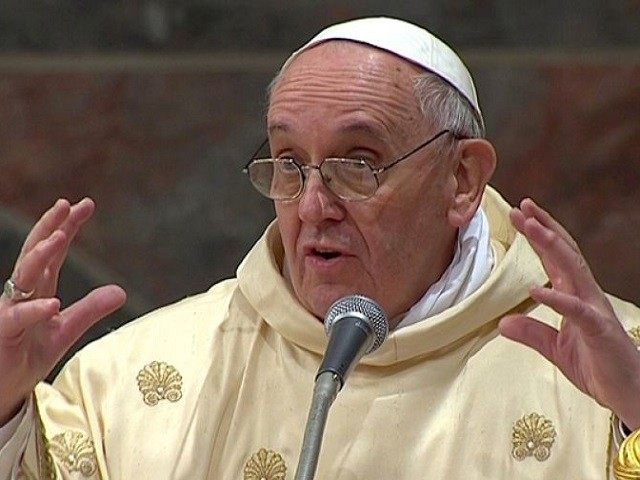In a historic statement, Pope Francis has closed the door to the death penalty, calling it “inadmissible.” In so doing, he has gone beyond any pope before him in condemning capital punishment.
As recently as 2004, Cardinal Joseph Ratzinger—the future Pope Benedict XVI—stated that a good Catholic could be “at odds” with the Pope regarding the application of capital punishment, since it does not represent a moral absolute. While the Church exhorts civil authorities “to exercise discretion and mercy in imposing punishment on criminals,” the Cardinal wrote, “it may still be permissible” to have recourse to capital punishment. “There may be a legitimate diversity of opinion even among Catholics about waging war and applying the death penalty,” he said, whereas this is not true “with regard to abortion and euthanasia,” which are moral absolutes.
In Friday’s letter to the International Commission against the death penalty, Pope Francis cites the teaching of his predecessor Saint John Paul II, who tightened the conditions for applying capital punishment to situations that require it for the defense of society.
In 1995, Pope John Paul wrote that capital punishment must be considered in the context of legitimate defense. “On this matter,” he wrote, “there is a growing tendency, both in the Church and in civil society, to demand that it be applied in a very limited way or even that it be abolished completely.”
He also said that society should not go to the extreme of executing an offender “except in cases of absolute necessity,” which, he wrote, “are very rare, if not practically non-existent.”
Francis, however, goes still further, asserting that capital punishment cannot be a form of legitimate defense.
While acknowledging that on occasions it may be necessary to repel an aggressor even through the use of lethal force, Francis asserts that the conditions of legitimate self-defense are not applicable to the punishment of criminals “without risk of misrepresentation.” In fact, he said, “when the death penalty is applied, persons are not killed in the act of aggression, but for damage committed in the past. Moreover, it is applied to people whose ability to harm is no longer present, but has already been neutralized and who are deprived of their liberty.”
“Today, the death penalty is inadmissible,” the Pope continued, “no matter how serious the crime of the offender. It is an offense to the inviolability of life and the dignity of the human person that contradicts God’s plan for man and society and His merciful justice.”
The death penalty “does not do justice to the victims, but encourages revenge,” he said.
Francis quotes Dostoyevsky in saying that “to execute a man for murder is to punish him immeasurably more dreadfully than is equivalent to his crime. A murder by sentence is far more dreadful than a murder committed by a criminal.”
“You will never reach justice by killing a human being,” Francis said.
The Pope stated that the death penalty “has lost all legitimacy” because of the deficient selectivity of the penal system and the possibility of judicial error. “Human justice is imperfect,” he said, “and to not recognize its fallibility can turn it into a source of injustice.”
Today, Francis said, not only are there means “to suppress crime effectively” without recourse to the death penalty, but there is also “a greater moral sensitivity regarding the value of human life.”
All Christians and people of good will are therefore called to fight “for the abolition of the death penalty,” he said.
Follow Thomas D. Williams on Twitter @tdwilliamsrome.

COMMENTS
Please let us know if you're having issues with commenting.